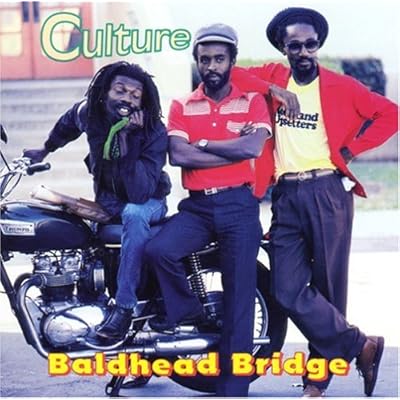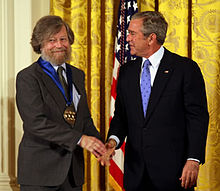
How well DID we actually know Guru's steez? What words come to mind when you think of his flow? Probably "smooth". (Christgau: "For anyone wondering what 'flow' can mean, Guru's smooth, unshowy delivery, cool in its confident warmth and swift without ever burying words or betraying rush, is one ideal...") Maybe "monotone". (Oliver Wang: "[W]ith his laconic monotone, there was something mesmerizing in his flow.") How about "virtuosic"?
If you Google "guru premier flow virtuoso" (you have to throw in "premier" to avoid all the Indian raga virtuosi), you get results that call DJ Premier a virtuoso, or that call the various jazz players assembled for Guru's Jazzmatazz series virtuosic, but very little if anything applying the term to Guru. Christgau's got it right: he wasn't showy, he didn't rush, you could usually understand what he was saying. This is part of what made Jazzmatazz so appealing to me as a little high school pipsqueak. (That, and he didn't cuss, no doubt out of respect for his elders.) He wasn't, you know, TWISTA (hometown!), who's in the Guinness book for pronouncing 11.2 syllables per second. (Although, to be fair to my strawmen, "twista flow virtuoso" doesn't yield a whole lot more. Is rap resistant to the term "virtuoso", if not the concept?)
The Flowtation Device humbly proposes that, if your idea of virtuosity has room for Twista but not Guru, you deserve a verbal ass whip. A rapper's virtuosity isn't simply a juvenile parlor trick, the flow equivalent of a Dragonforce guitar solo. It's making the words breathe, commanding a beat, finding a way to spit life into a song. It might not land you in Guinness, but it's a musical challenge just as hard as talking like the Micro Machine Man (alma mater!)--and aesthetically it's worth a lot more. I'm not saying there's NOT room in the Virtuoso House for Twista or Bone Thugz (the FD is SO gonna get to them someday)--but let Guru in too.
So, how does Guru breathe life into "You Know My Steez"? Listen, and we'll discuss:
Pretty simple, right?--a rhyme every second bar, only a couple instances of triplets (which are a poor-man's virtuosity anyway), and that smooth monotone throughout, not even acknowledging his own jokes or death threats. How is Guru different than Rick Ross, who's quickly become our go-to example of a listenable hack-rapper? (Sorry dude.)
In a fascinating 2003 interview, Guru described his working method with Premier:
"Our formula is like this. We start with the title. Then, Premier makes the beat. Then, I do the rhymes. Each time I do a rhyme, I am writing it directly to the beat. So, whatever flow I do has to go directly to the beat."
Now, I've no idea whether Rick Ross tailors his flow to his beats or not--but since his flow is THE SAME IN EVERY SONG, I kinda doubt it. In "Steez", Guru rhymes every second bar because Premier's beat is four bars long. It's neat and tidy, a rhyme for every beat cycle. But Guru's virtuosity allows him to take this premise--"I will rhyme every second bar"--and then toy with our expectations, using only his mad love and the illest warlike tactics. The four lines that begin Verse 2 are the most straightforward statement of this pattern:
*.*.*.*the /
BEATisSINisTER.PRIMo / MAKESyouRElax=i'mLIKEthe / (2&)
MINisTER.*whenIbe / LACin'THEwax=.Ibe / (2&)
BRINGin'SALva=tionTHROUGHthe / WAYthatIrap*.*and / (2&)
YOUknow*andIknow*i'm / NICE_LIKEthat*work=through / (2&)
Every line-ending rhyme--"relax," "wax," "rap," "that"--falls on the "&" of beat 2. Of course, Guru throws in several interior rhymes and changes up the rhythm at the beginning of each line, so already he's two steps beyond Rick Ross's huffing and puffing. But this sequence is one of the exceptions to Guru's "Steez"--in most other line-ending rhymes, the rhyming words fall on different beats. Sometimes the rhymes are close, only off by a half-beat or a beat:
you'reINthe /
TERrorDOME_LIKEmyMAN_ / CHUCKd*said*it'sTIMEto / (2&)
DEthrone=youCLONES_*and / ALLyouKNUCKleHEADS.*cause / (3)
M.C'ShaveUSED.UPex / TENDedWARranTIES.*while / (3)
REALm=c's=andDj's / =areAmiNORiTY. / (4)
The rhymes of "warranties" and "minority" fall a beat apart in their respective bars, but this isn't uncommon for rappers of even modest skillz--right, Vanillz?:
DANCE.*.*bumRUSHthe / SPEAKerTHAT.BOOMS.*i'm / (3)
KILLin'=yourBRAIN.LIKEa / POIsonOUS.MUSH.ROOM. / (4)
In the case of both Guru and Vanilla Ice, when the second rhyming word hits later than the first one, it gives the couplet a sense of added resolution. This technique is pretty common.
What happens, then, when the second rhyming word hits earlier than the first one? Why, we get one of the song's laff lines, from Verse 1:
*seVERE_FACTShaveBROUGHTthis / RAP.GAMEtoNEARcolLAPSE. / (4)
*soASiHAVEinTHEpast / *iWHUPass=. (2&)
Guru sets up an elegy for The Game, ending on beat 4, and then lands his punchline--"I whup ass"--a beat and a half early, for emphasis. Since his monotone delivery doesn't change, it's important to note that Guru's selling his punchline SOLELY with his use of rhythmic placement. He lets his rhythm tell the joke for him, without feeling the need to change his inflection. That's a big reason people describe Guru as "smooth" and "cool" all the time.
In another variation, Guru turns a two-rhyme couplet into a three-rhyme couplet (triplet?). In Verse 1, he gives us these:
*.SPORTin'CAPS_PULLEDlow / =andBAGgySLACKS_*sub / (3)
TRACTin'ALLtheRAPpersWHOlack / *oVERpreMIER'S_TRACKS_ / (4&, 4)
*theWILDerNESSisFILLEDwith / THIS.*soMANyPEOple / (1)
SEARCHingFORfalse=lift*i'm / HERE_WIT'theSKILLSyou'veMISSED_ / (3&, 4)
Again, this isn't an unusual rhyme pattern--I think we witnessed Mos Def doing something similar--but it's another variation that Guru effortlessly sneaks into an apparently stable couplet pattern. Especially since he's been throwing in all manner of internal rhyme and assonance up to this point, it feels especially effortless, like a couplet masquerading as a secondary internal rhyme.
Finally, in Verse 2 Guru turns the couplet pattern around. Remember Premier's four-bar beat pattern? Up until now Guru's couplets have been almost entirely enclosed within each statement of the beat--the first rhyming word hits in the second bar, the second rhyming word hits in the fourth bar, and it's a tidy little beat/rhyme package. But then, Guru decides to add a third rhyming word, which pushes his couplet pattern back two bars, and his couplets overlap the beat until verse's end. Here's what it looks like:
[beginning of four-bar beat pattern]
WORldLYprob=lems=i / GOTtheHEALingPOWerWHENthe / 3
MIC'SwithINmyREACH.*i'm / FEELin'MOREpowERstealIN'at / 2&
[beginning of four-bar beat pattern]
LEAST.THREEminUTESofEV'ry / RAPraDIoHOur*it's /
OFtenEASiERforONE_ / *toGIVEadVICE.THANit /
[beginning of four-bar beat pattern]
IS_FORaPERson=to / RUN_ONE'Sown=life=. /
*that'sWHYiCAN'TbeCAUGHTup / *inALLtheHYPE.*i /
[beginning of four-bar beat pattern]
KEEPmySOUL_TIGHTandLETthese / LINES_TAKEflight=theAPpar /
[and so on]
Look at how, with the rhyme of the second "power" and "hour," the rhymes and the beat patterns stop lining up and begin to overlap. I'm not sure there's any programmatic reason for this effect--it seems to be virtuosity and interest for virtuosity's and interest's sake. But hey, what else is virtuosity FOR, right?
The worst examples of virtuosity (Dragonforce, some Bone Thugs) are off-putting; they erect a wall between artist and audience. Guru's subtler, more confident virtuosity draws us in. It's almost like he picked "Steez"'s deceptively simple rhyme scheme just to show how much he could do with it. He was a master, not just of maintaining interest, but of mesmerizing.





